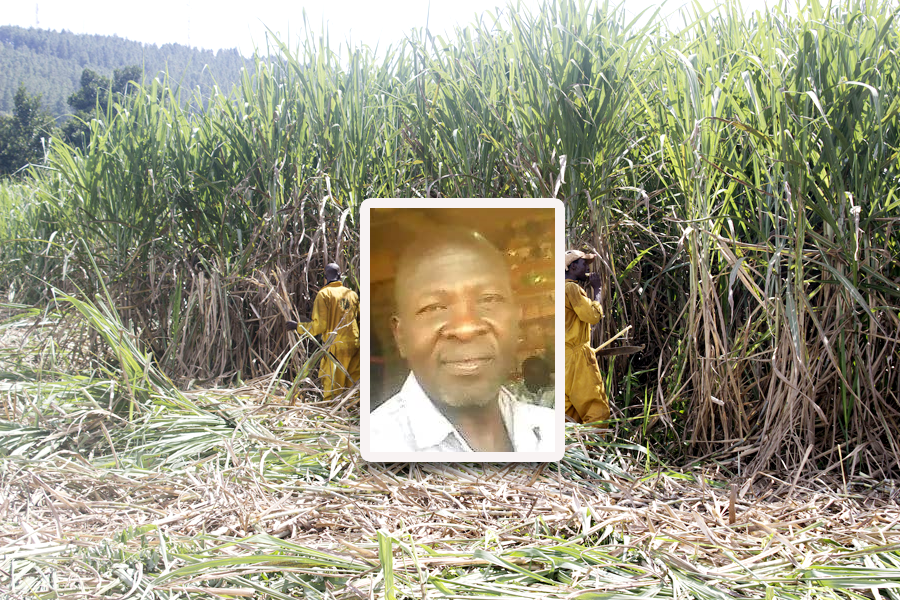OPINION: Why Uganda needs to be deliberate about rice growing
Recently, there were reports that the Ministry of Trade and Industry had lodged in Cabinet a request for government to consider tax exemption on rice imported in the country. It was further reported that the rice importers and businessmen while lobbying through the Ministry of Trade and Industry, were requesting for tax exemption on 300,000 metric tons of milled white rice that is to be imported in the country this current financial year to meet the alleged current market deficit of the same. It is also understood that after careful consideration of the request and with the timely guidance of H.E, the President, the said request of tax exemption was rejected. We are yet to know the details and the basis for the request and rejection. However, we do know that the said 300,000 metric tons of white rice were not being imported from Asia, but from our neighbors Tanzania.
It was also reported that if the exemption that these traders were asking for had been granted, the country Uganda would have lost almost Shs. 450bn in the taxes exempted on this particular importation. It therefore should be hoped that actually this tax accruing from this importation will be collected and deposited in its totality with the National Treasury.
The big questions now which should linger on our minds and those of our national planners are twofold:-
- Why do we as a country continue to have a deficit of that magnitude of such an important food grain yet Uganda is known for its endowment with fertile soils and ideal agricultural climate?
- How come Tanzania which has a much larger population than Uganda, is able to have excess capacity of the white rice that can be imported into Uganda.
The other equally important question is how can the country be able to plug this deficit gap?
According to available figures, Tanzania produces 2.2 million metric tons of milled rice annually compared to Uganda’s 238,000 metric tons.
The statistical figures given by KNOEM – Business Data Atlas, show the different countries’ paddy rice yield rankings per hectare for the year 2021.
| Country | Yield in hectogram per hectare (Hg/Ha) |
| Tanzania | 28,125 |
| Uganda | 29,932 |
| Kenya | 72,804 |
| Malawi | 19,113 |
| Rwanda | 41,596 |
| Burundi | 23,773 |
| Eswatini | 30,269 |
| Egypt | 102,031 |
From the above data, it can be concluded that although Uganda seemed to have had a slightly higher per hectare yield than Tanzania in the agricultural year season of 2021, Tanzania produced more and continues to surpass Uganda’s overall national milled rice production. Ostensibly, it can be concluded that it is due to this deficit in local rice production that has arisen that is giving to an increased need to import white rice from Tanzania.
If this assumption is true, then the relevant and immediate question that needs to be asked to the managers in the Ministry of Agriculture, Animal Industry & Fisheries (MAAIF) and our country national planners is what is being done to address this anomaly? Although, Uganda has been known to depend traditionally on maize, matooke, millet and potatoes as the major staple food crops, over time, rice has increasingly become a major food in many homesteads and restaurants.
It is therefore important for the country to deliberately embark on the promotion of growing of rice as part of the national food security strategy. `The figures show that the current country’s production of milled rice is only 238,000 metric tons as compared to the country’s consumption demand for 346,000 metric tons.
It therefore infers that without deliberate national strategy to increase the rice production locally in the country, the existing gap between production and consumption can only be filled by imports. Although, it is argued often that government ought to let the market forces of demand and supply sort out the available imbalances, government will not be able to sustain its resistance to offering tax exemptions to potential rice importations. We all know that all governments in other jurisdictions globally do continue to offer subsidies to their agricultural farmers in order not only to cushion them against climatic uncertainties and other risks but also to enable their commodities to be more competitive in the world market. This is something that has also been resisted or objected to by our government, thus rendering the local farmer very vulnerable and obviously not competitive with the imports that are ever flooding the local markets.
It is therefore imperative that government embarks to the journey to not only guide and streamline the growing of rice in the country by establishing a National Rice Development Strategy with specific Key Performance Indicators (KPIs). We no longer have the luxury to just leave this key and critical sector to the national food security agenda be left to the whims of individual and disjointed and unguided rice farmers, millers and traders.
We ought to borrow a leaf from Tanzania who has walked this path since 2008, when they established the National Rice Development Strategy (NRDS). As a result and in collaboration with the International Rice Research Institute (IRRI) based in Los Banos, Laguna in the Philippines, the Tanzania rice development efforts have yielded the following achievements:
- Development of localized high-yielding rice varieties
- Strengthening country’s capacity
- Established sustainable systems in seeds and crop management
- Obtained international support for rice research in Tanzania
Needless to say, in pursuit of developing rice growing in the country, relevant partners must be indentified and those collaborative linkages strengthened.
Finally, there is need for government through NEMA to guide the country in regard to what constitutes a wetland not fit for rice growing and what is fit for establishment of factories and industrial parks. This guidance will go a long way to addressing the ongoing rampant desecration of wetlands in the name of development while on the other hand many communities in the potential rice growing areas continue to be molested and thrown in prisons on crimes of destroying the wetlands.
By Edward Baliddawa – 1st May 2023













